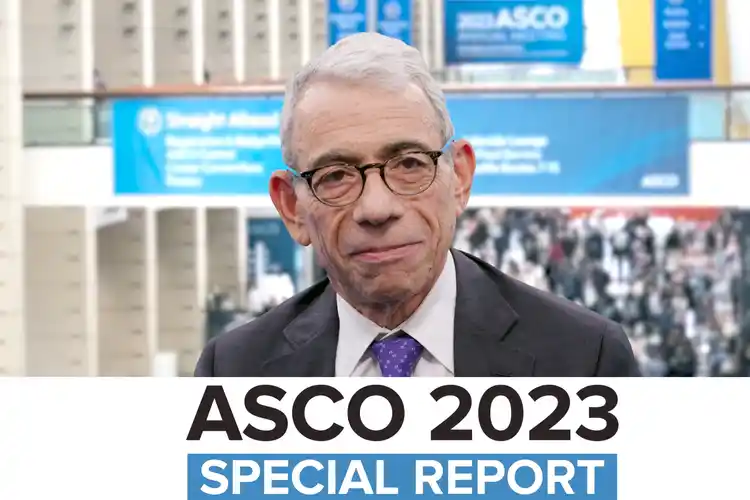
ERIC WINER: Hi. I'm Eric Winer. I am a medical oncologist, a medical oncologist that has spent my life focusing on breast cancer and breast cancer research. And I am now the Cancer Center director at Yale University at Yale Comprehensive Cancer Center and the physician in chief at Smilow Cancer Hospital.
This year, my presidential theme for ASCO is partnering with patients, the cornerstone of clinical care, and research. And it was a very deliberately selected theme. I do many things and have done many things in my career. I've educated, I've done research, I've taken care of patients. But everything that I do fundamentally has been based in patient care and has grown out of my interest in making patient care as good as it can possibly be for everyone.
I still see patients; I still feel very strongly about seeing patients. I can't do it too many hours a week. I spend about half a day a week in clinic, but I think the day I stop seeing patients is probably the day I retire.
ERIC WINER: I think that much of my commitment to patient care comes from experiences that I had as a child and as an adult, as a patient, and recognizing how important doctors can be, doctors and other health care professionals can be for people who have serious illnesses. And it gives me a great deal of satisfaction to both take care of people, but also to feel like I'm in a really positive relationship with them and partnering with them around their care, and for that matter, around their participation in research.
And in truth, if one wants a patient to consider participating in a clinical trial or other research studies, it's really important that that patient understand just what that research is about, what the clinical trial is about, and that all comes from effective partnering. I think that there are many, many doctors and many nurses and many physician assistants and pharmacists and social workers who already do a great job in terms of partnering with their patients, but at the same time, I think we can always do a better job.
I also think that there are forces at play that are making it more difficult than it ever was before.
ERIC WINER: I actually think that patients get better care and are happier with their care if, in fact, they feel they're part of the team and that they have a strong partnership with their doctor, nurse, what have you. And in fact, studies have been done that have demonstrated this. And there was a review done by the Institute of Medicine, now called the National Academy of Medicine, many years ago that strongly suggested that patients who feel like they're part of the team and have strong partnerships have better overall outcomes, have shorter lengths of stay in the hospital, are more satisfied with their care, and just as a general rule seem to do better.
And I guess the way I like to think of this is that the medical team is an expert in the medical treatments. The patient and sometimes the patient's family is an expert in the patient. And it takes putting together both the medical judgment and the knowledge, the very in-depth knowledge about the patient, that leads to the right decision.
Now I think one part of this is that as a physician, when you're trying to make decisions with a patient about do you want to do treatment A or treatment B and this does one decision or another make sense, you can't just make that decision without knowing something about the patient, knowing how old the patient is, what the patient's family situation is like, and perhaps most importantly, what the patient's preferences are. Do they want to take any possible treatment if it will increase their chance of remaining free of a recurrence of cancer by any amount. Or are they somebody who would say, I don't want a treatment if it has any substantial chance of causing neuropathy or numbness in the fingers or toes because I need to use my hands for my work, and my work is critical to me.
Or is it a patient who says, I don't want to take any treatment that's going to interfere in any way with my spending time with my children and being able to take them to their appointments and do everything that's necessary for their care. So I think the best decisions come from a dialogue that goes back and forth.